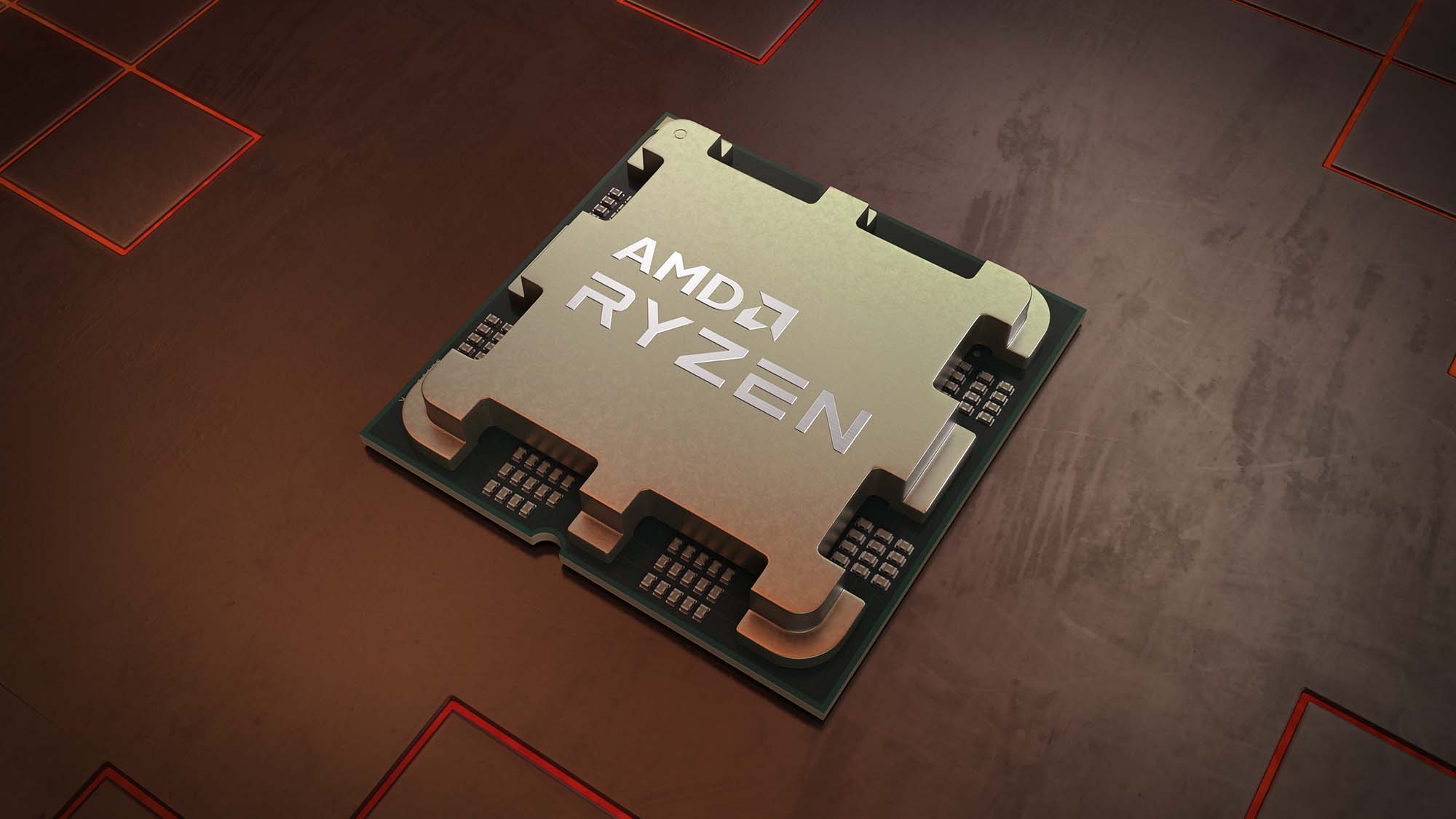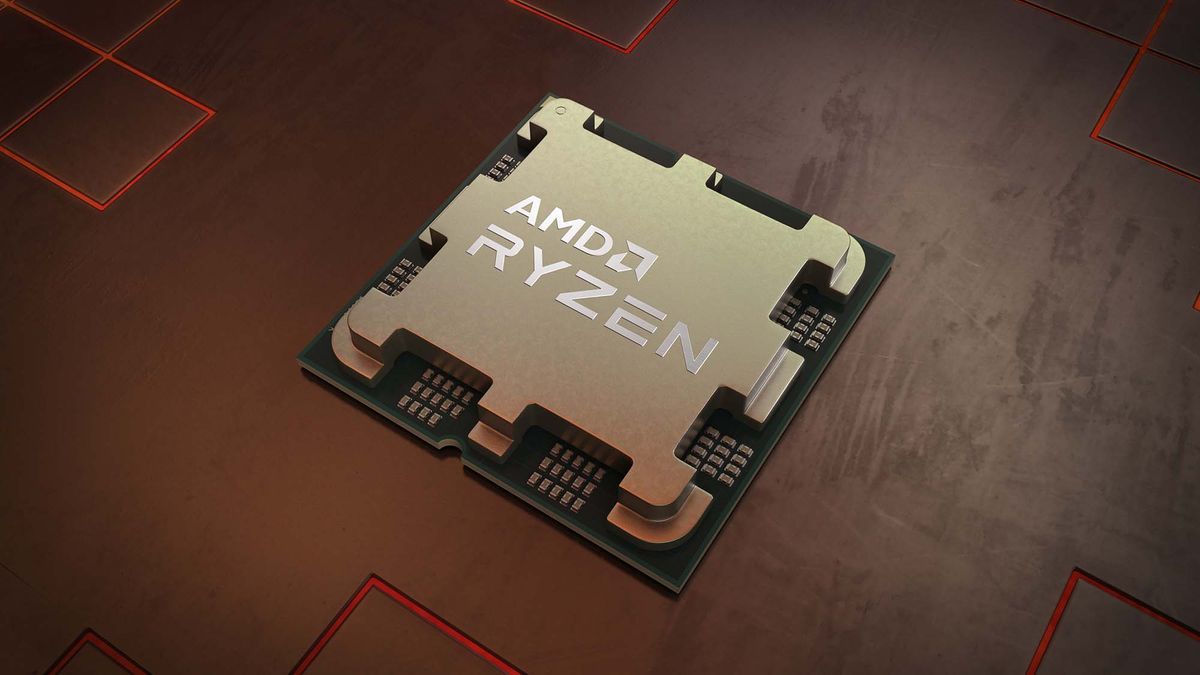
The performance race continues, as a newly leaked AMD review guide revealed that the AMD Ryzen 9 7950X3D is between 5-6% faster than the Intel Core i9-13900K.
The confidential data, which was leaked by HDTecnologia (opens in new tab) and reported on by VideoCardz (opens in new tab), shows how well the Ryzen 9 7950X3D flagship Zen4 model equipped with extended L3 cache performs against the Intel 13th-gen processor. According to said data, the 7950X3D is 5.6% faster in gaming based on games like Assassin’s Creed: Valhalla, Borderlands 3, Cyperpunk 2077, Dirt 5, and more played at 1080p resolution.
AMD tested the Ryzen 9 7950X3D using two graphics cards, the Radeon RX 7900 XTX and the Nvidia RTX 4090, with both systems featuring two 16GB DDR5-6000 memory. When using the Radeon RX 7900 XTX, the gap between the two processors is 5.6%. That gap increases to 6% when using the Nvidia RTX 4090.
The new AMD Ryzen 9 7950X3D model was also compared to the original model, the 7950X, without the extra cache, and testing found that the new 3D V-Cache processor is up to 16% faster than the original version.
AMD is using world-class bait but will buyers bite?
Team Red is heating things up by offering what seems to be the best AMD processors‘ performance compared to Team Blue’s current lineup. However, the crux of the matter is whether gamers are willing to shell out more money for the increase in performance.
Currently, the Ryzen 9 7950X3D is priced at $699 as of its launch, while the Core i9-13900K can be purchased at around $589 (with Amazon (opens in new tab) currently charging $569.99). That’s a pretty huge gap in cost. And, while there is a notable performance improvement, it’s hard to justify spending over $100 more for about a 6% difference.
It’s also no secret that PC games haven’t even fully caught up with last-gen specs, let alone anything this gen has to offer. Plus, for gamers, getting the latest processor is really meant to prevent performance bottlenecking unless you’re playing a real-time strategy game. As for creatives and workers, cheaper CPUs are perfectly fine.
We’ll see if sales numbers prove that buyers will invest in any performance improvements or if there’s a limit to those generous pockets.
(Except for the headline, this story has not been edited by PostX News and is published from a syndicated feed.)

